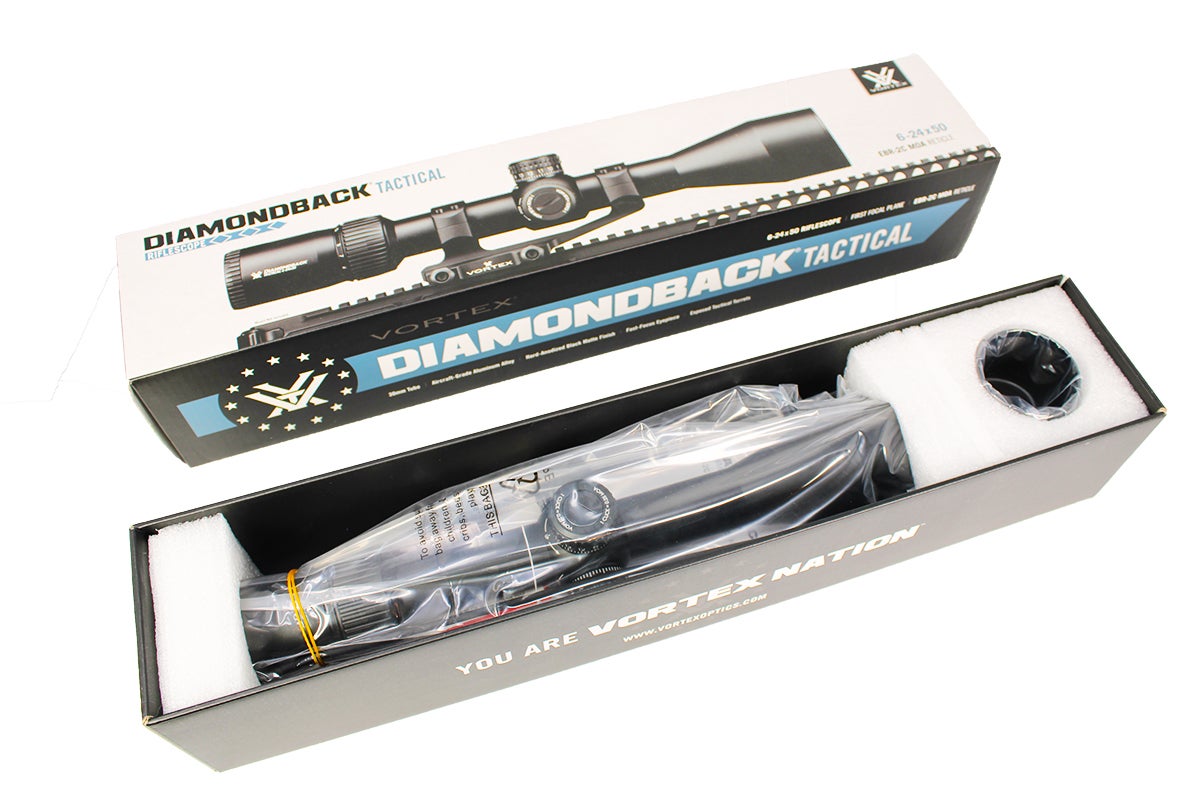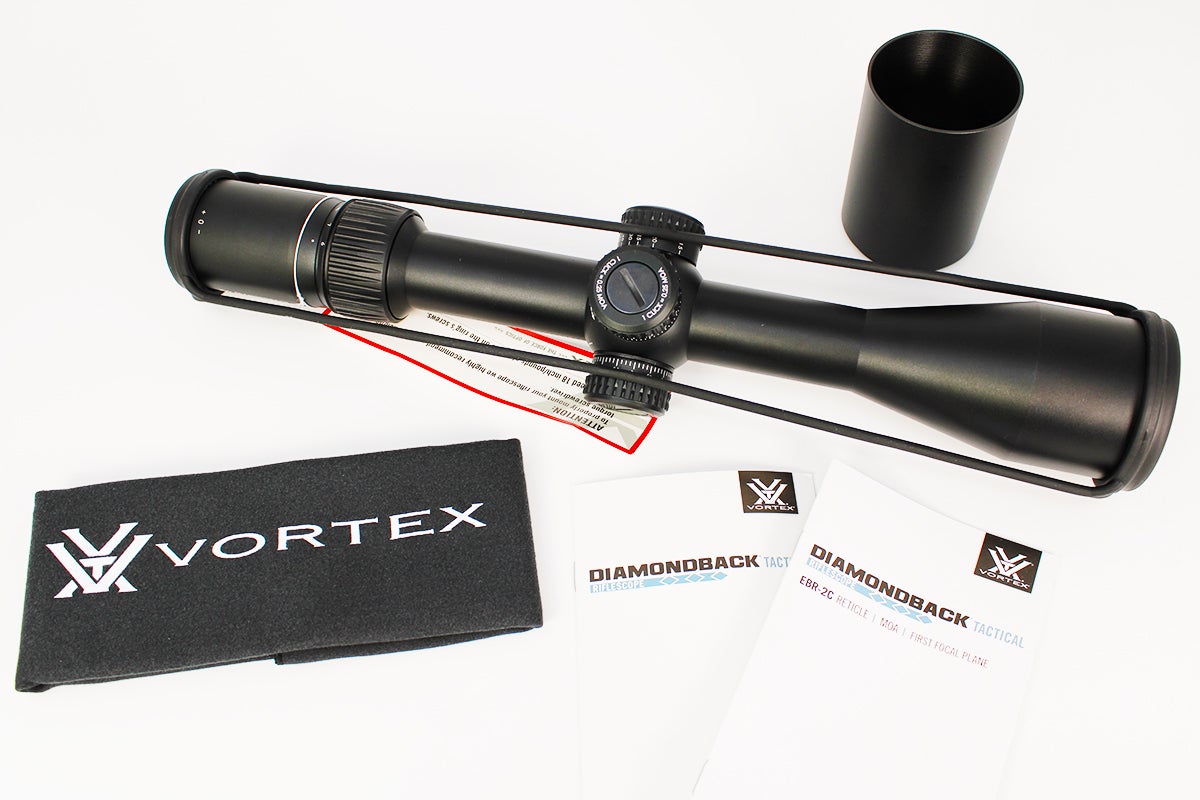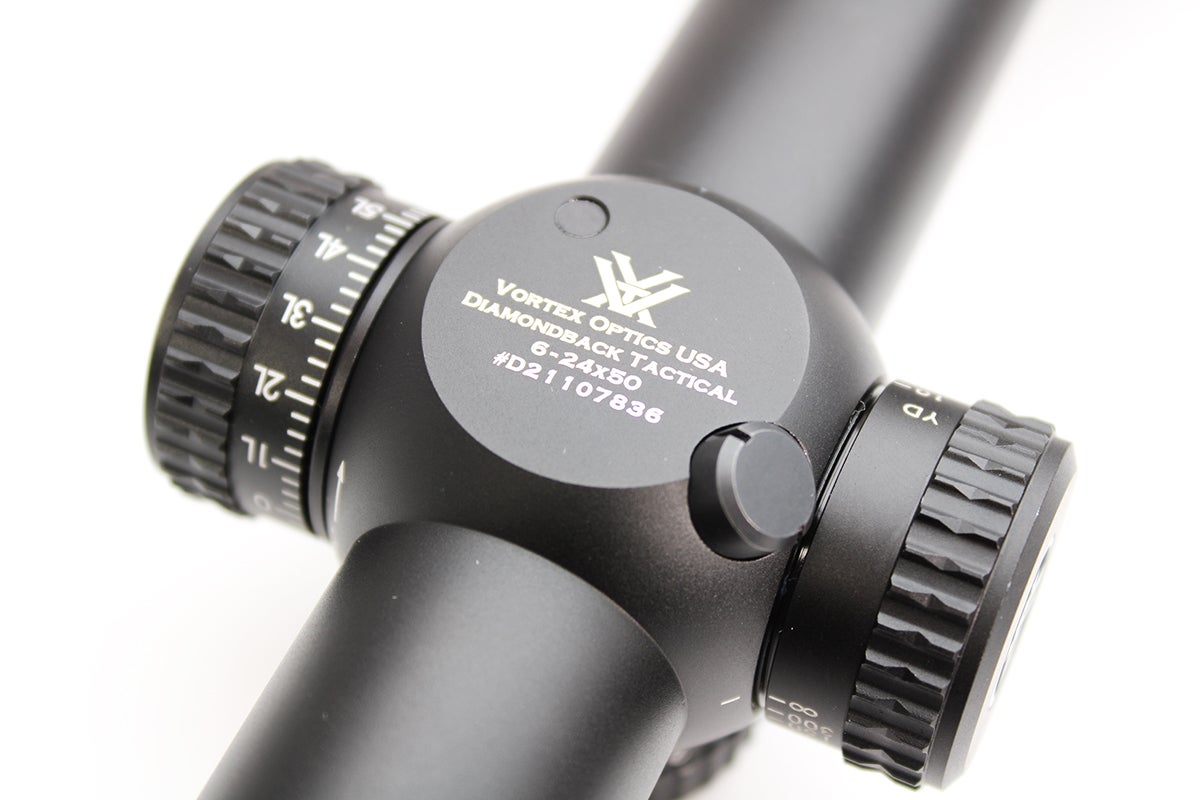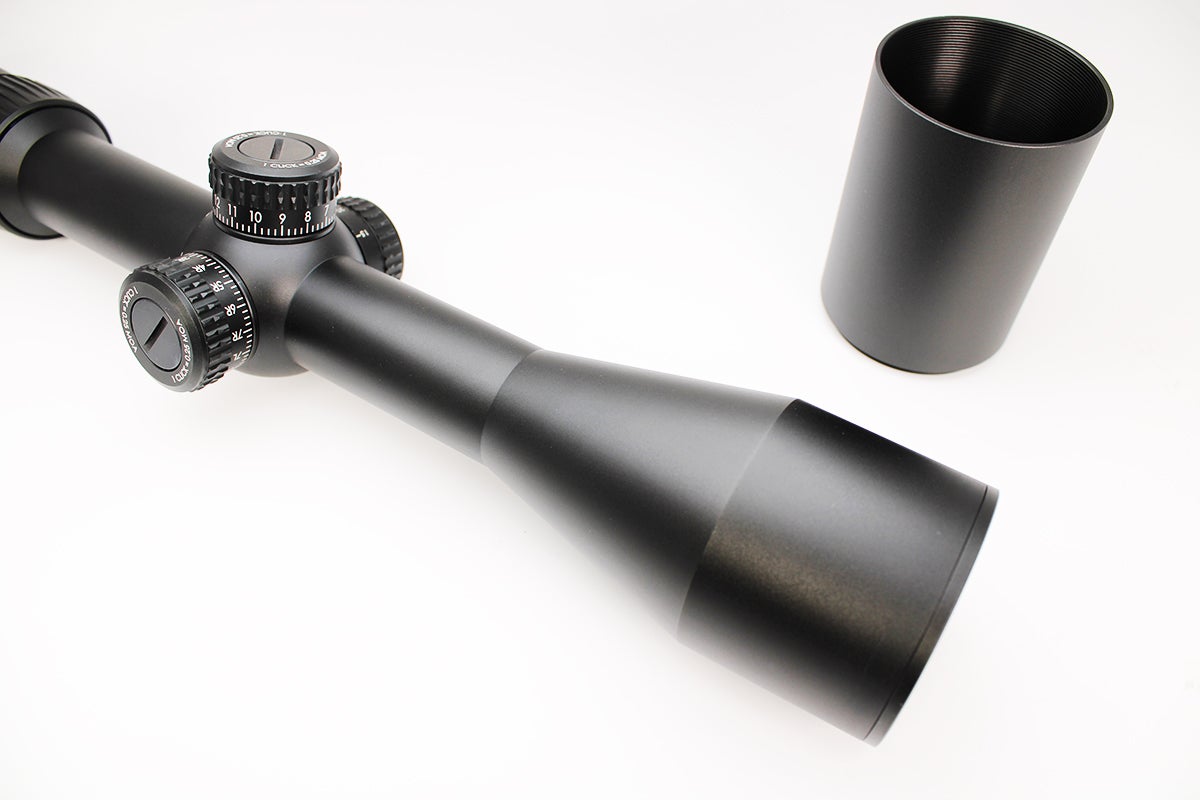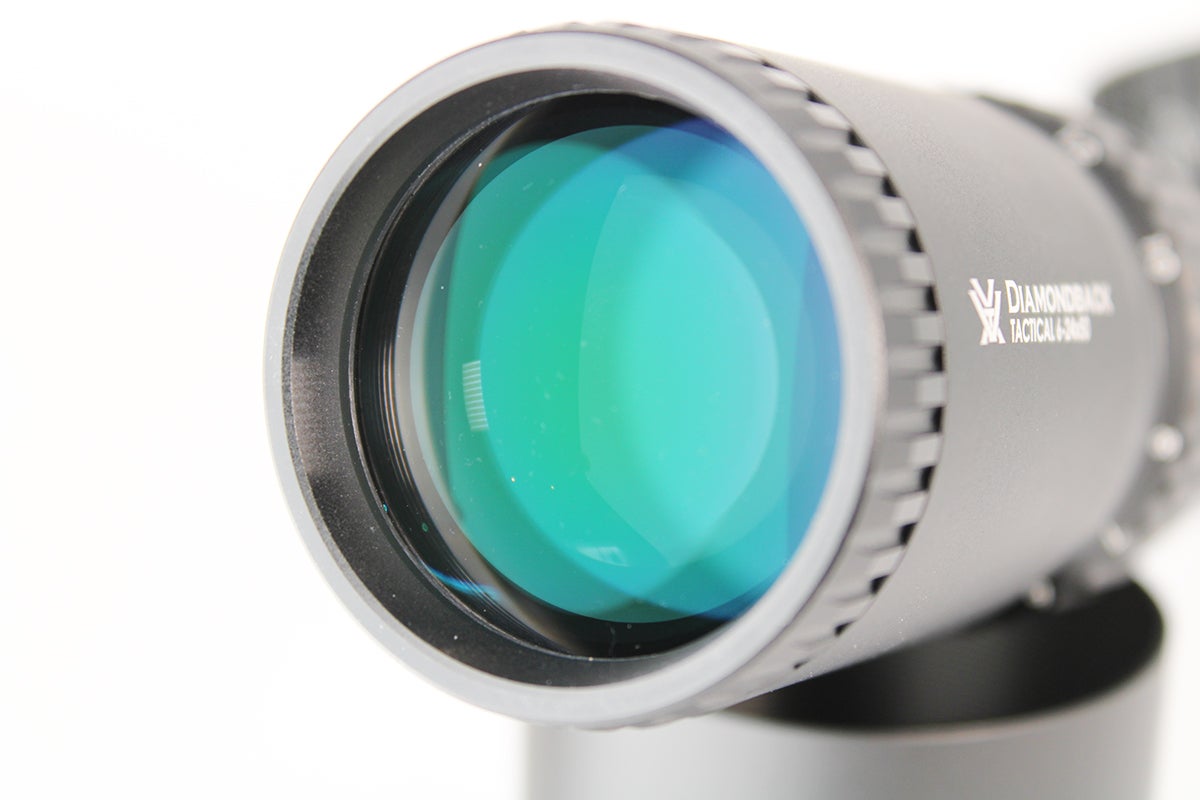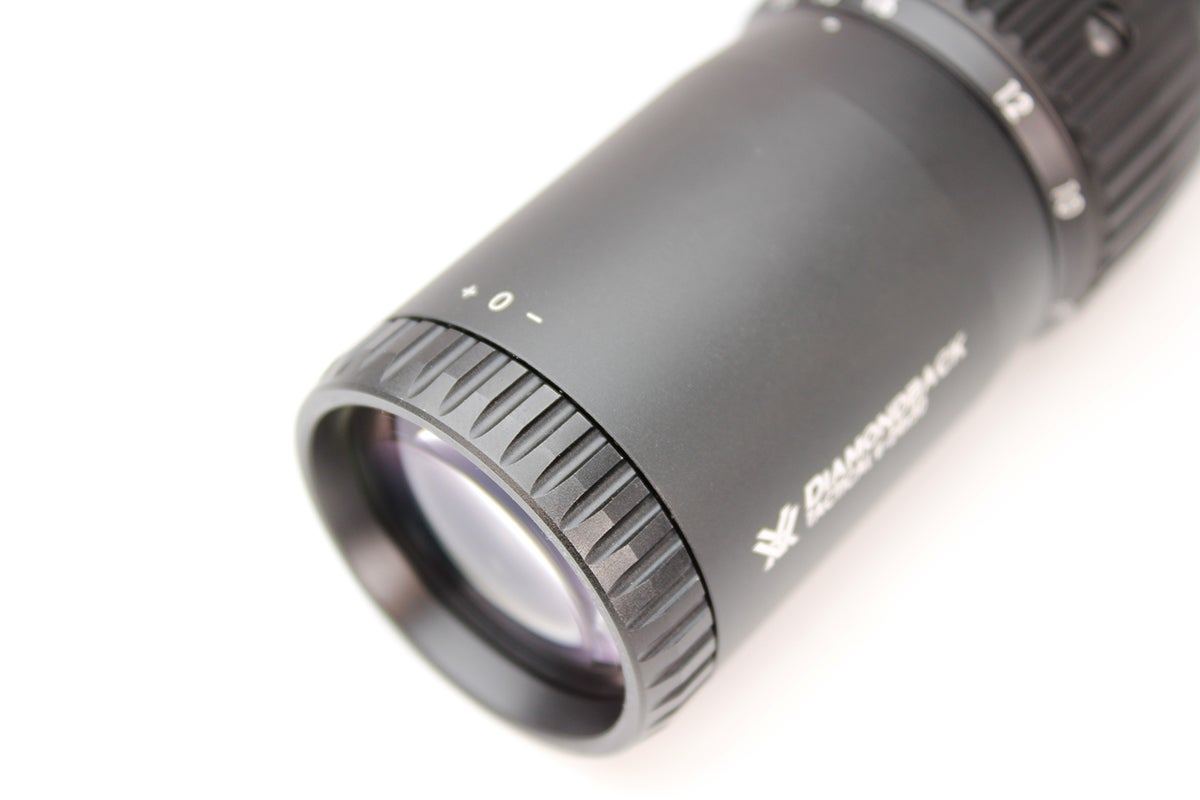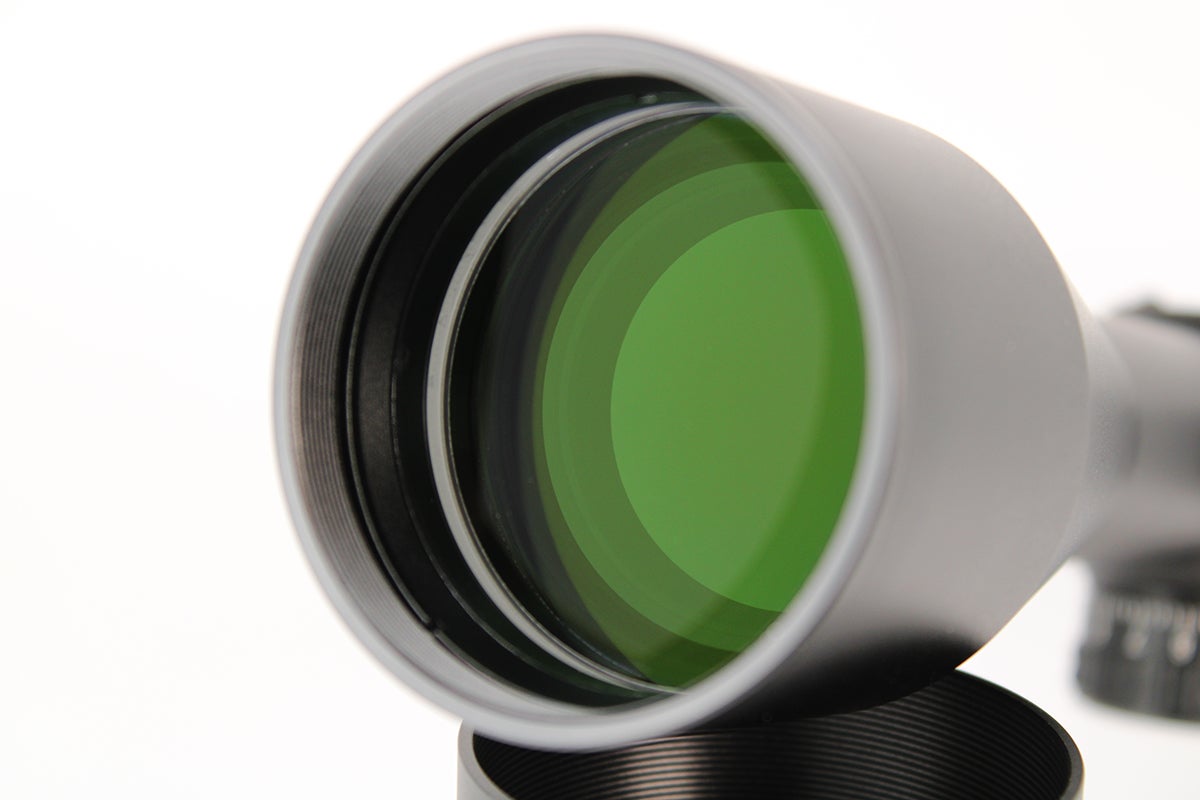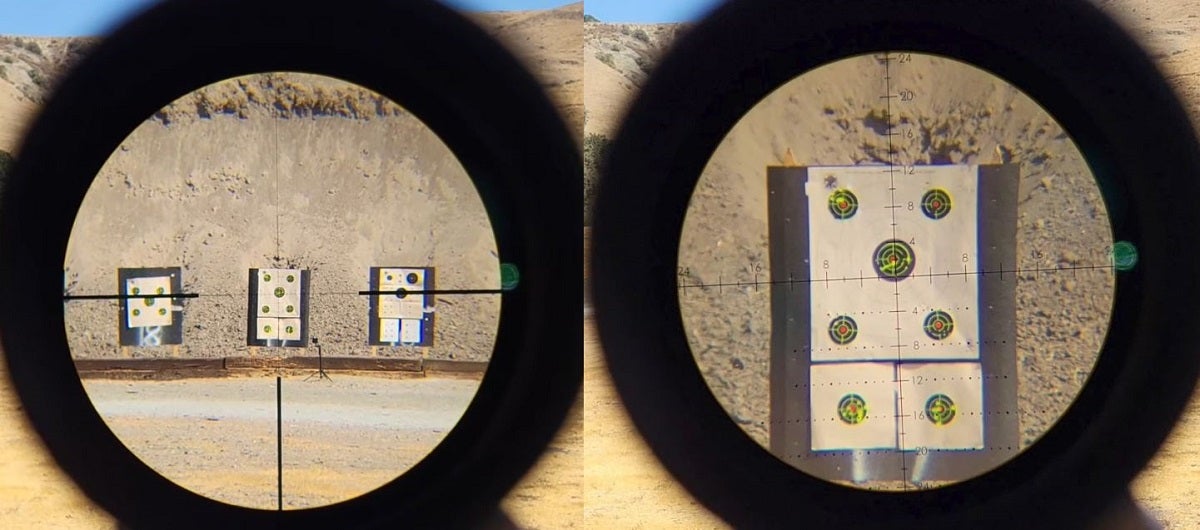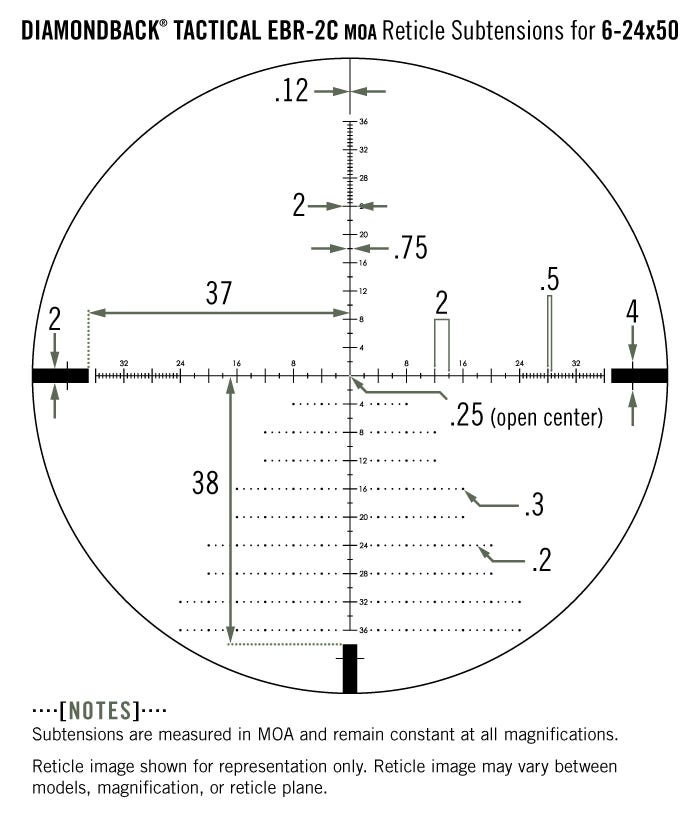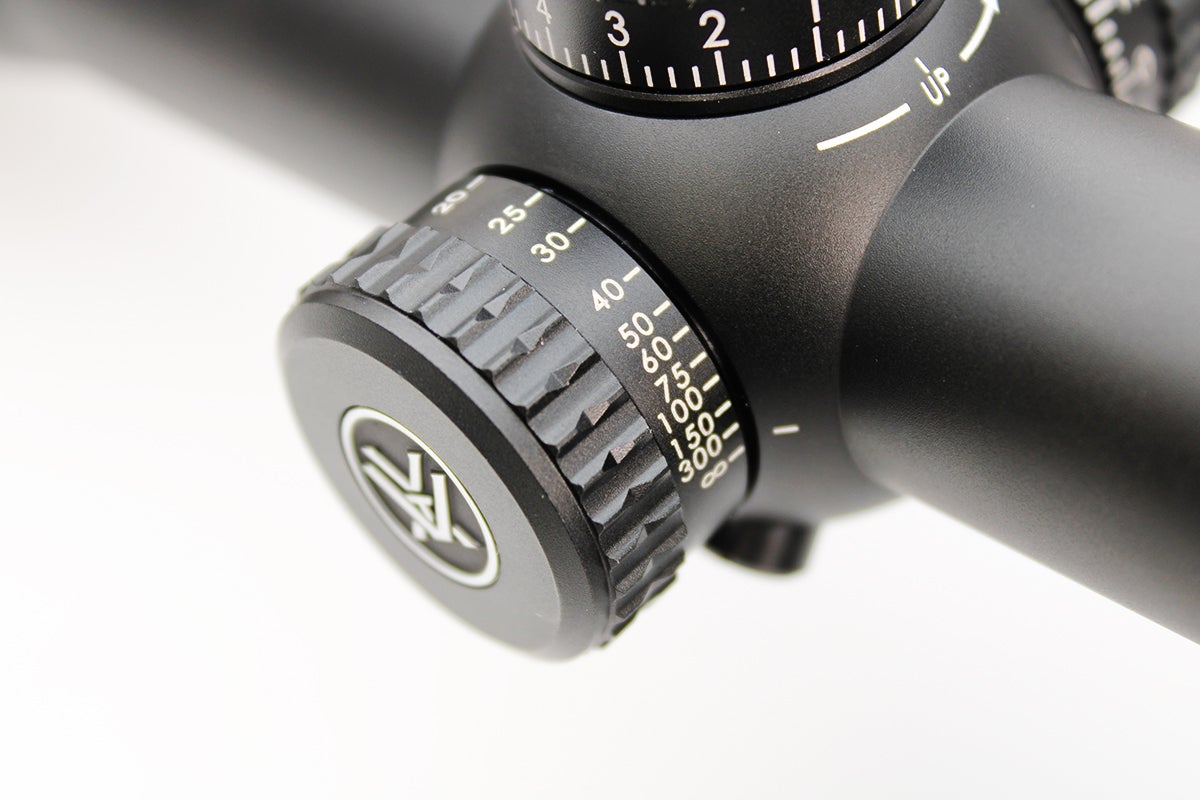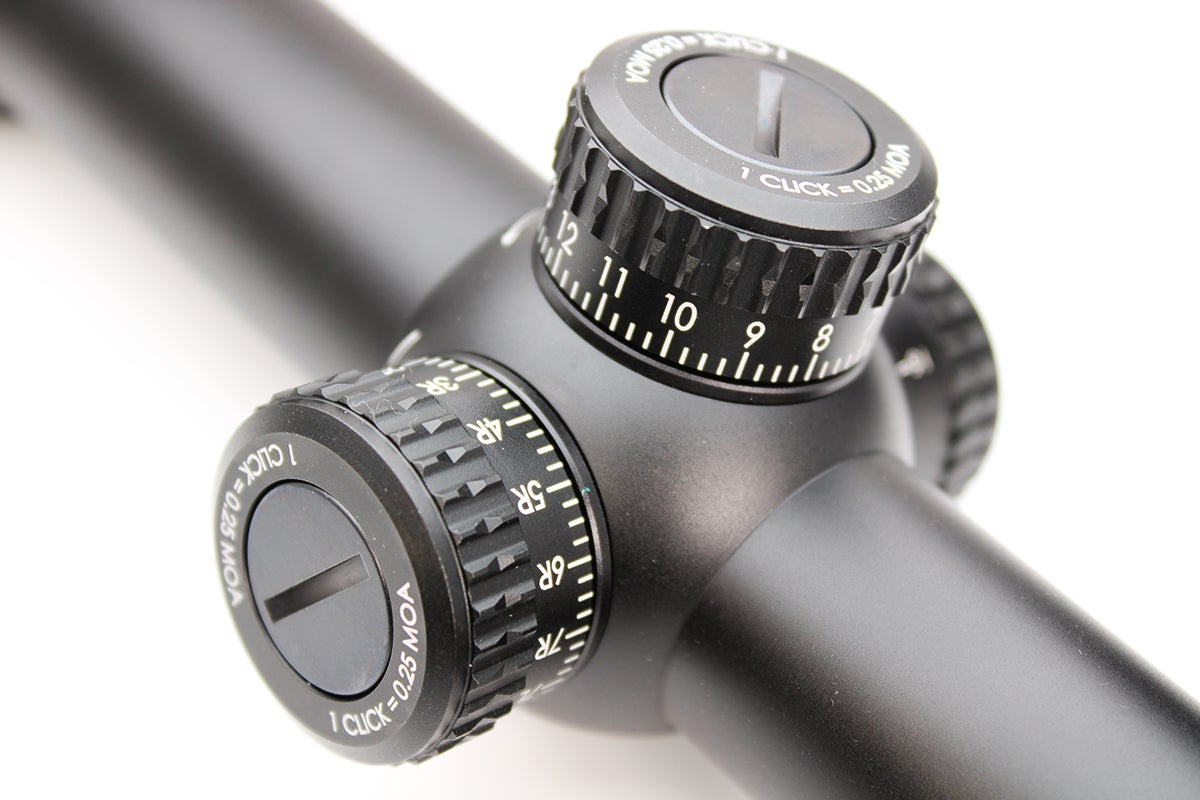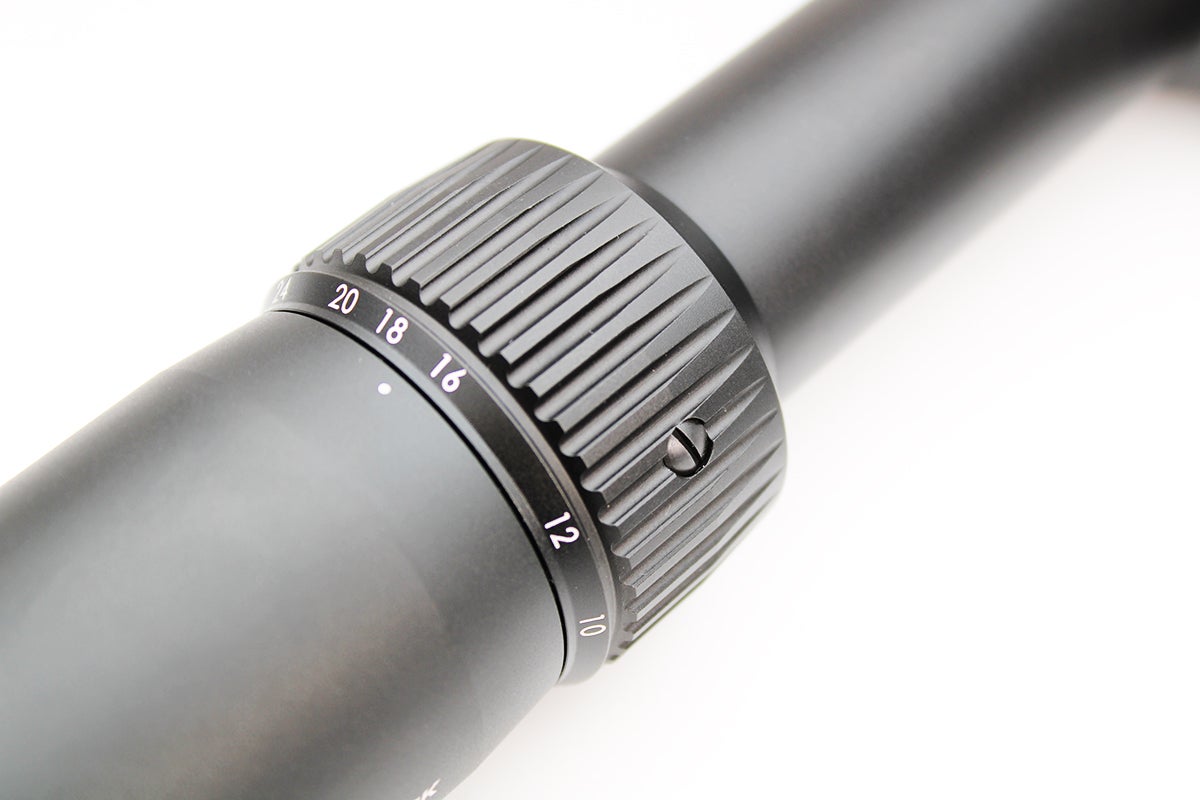AllOutdoor Review: Vortex Diamondback Tactical – Best $500 Riflescope?
Travis Olander 03.02.23
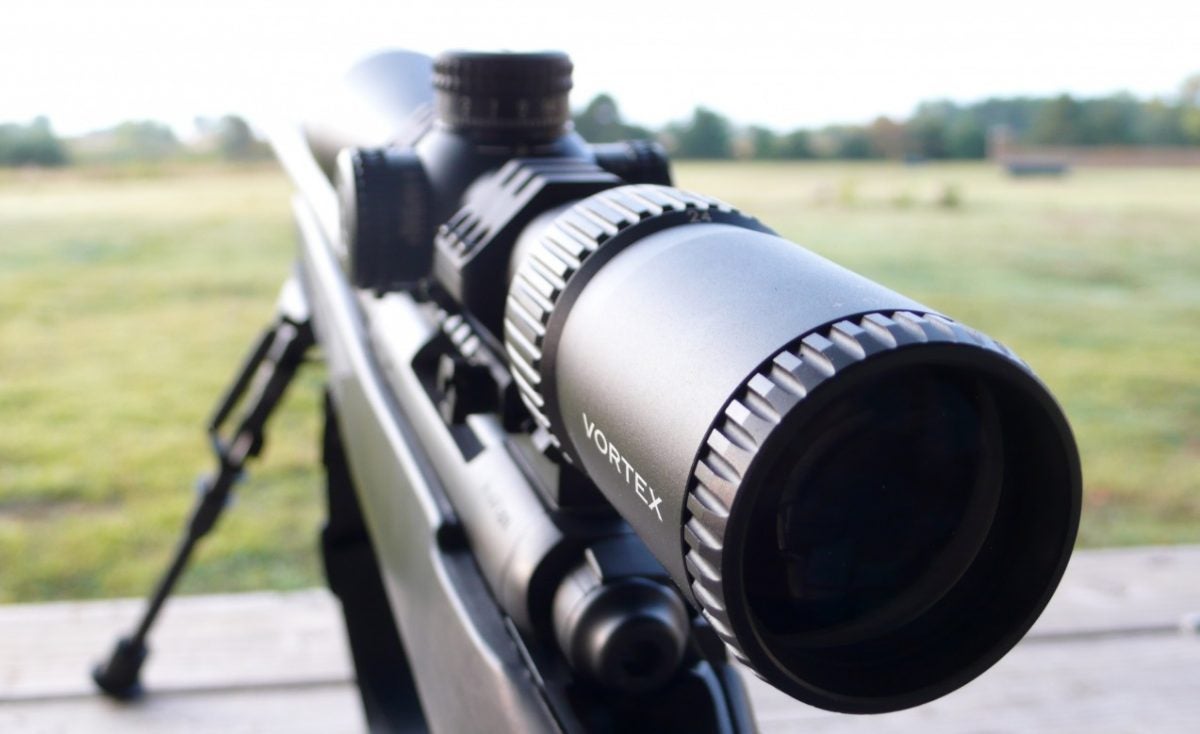
It’s 2023. Machining aluminum and grinding glass isn’t as difficult for scope makers as it was 10 or 20 years ago. That means you can generally get a decent rifle scope for under $1,000. What about tracking, clarity, recoil management, the ability to hold a zero, generous eye relief, and tactile turrets? This writer has put his shooting eye behind “cheap” Bushnell and Riton glass, expensive U.S. Optics and Zeiss tubes, and everything in between. It’s my opinion that, even in 2023, the Vortex Diamondback Tactical series of riflescopes provide arguably the best glass, turrets, and tracking at or below the $500 zone. We’re taking a closer look at the most expensive option in the Diamondback series: the Diamondback Tactical 6-24x50mm FFP, which sports an “EBR” reticle equipped with grid-style sub-tensions. I snagged this variant at $450 on the nose to finish off a 6.5 Grendel build.
Vortex Diamondback Tactical 6-24x50mm FFP
The Diamondback is shipped well enough. You’ll get a sunshade and basic instructions for using the reticle, turrets, parallax, and focus.
The only things missing are proper flip-up lens covers. Vortex probably stuck with the cheap lens bra to keep costs down.
You’ll find your optic’s serial number underneath the turret housing. The lil’ “USA” text is a tad misleading. Vortex manufactures their optics in China. Yes, overseas optics can get a bad rap, but Vortex provides one helluva warranty on these optics. Lifetime “no conditions” coverage provides a free repair or replacement scope if yours is damaged during regular use. The only thing Vortex probably won’t cover is using your scope as a club. I’ve used the warranty once before; Vortex took my busted Viper PST and sent a replacement out when I started getting some fog in the lenses.
The anodizing on the scope is excellent. Nice, smooth, with a consistent satin look. The anodizing on the sunshade matches up nicely with the rest of the scope.
The ocular lens is crisp and clear. Eye relief is advertised as about 3.9 inches, and that’s generally accurate. Relief is moderately forgiving at low and medium power. You’ll need to dial in your cheek weld and sight picture to keep things consistent at 24x. Surprisingly, the Diamondback Tactical overall beats out my Sightron SIII (which ran about $1,000) on eye relief.
The diopter feels solid and smooth. It stayed put under recoil and generally takes a solid grip to adjust. The knurling is a nice touch and the focus is consistent with a pretty broad range for those of you with a prescription.
On the business end, the objective lens is excellent. Vortex advertises this as their “XD Glass,” and the moniker holds up to the performance.
From 6x (left) to 24x (right) there’s no loss of brightness or contrast in regular daylight. No fish-eye or chromatic aberrations with good color and clarity across all magnification. Dusk and nighttime performance isn’t going to knock your socks off compared to, say, a $3,500 Nightforce, but it gets the job done if you’re pushing toward sunset on a hunt.
The FFP reticle is super crisp, too. It’s difficult to make out the grid sub-tensions in these handheld shots, but in-person, they’re quite readable and easy to use. Walking the box, the MOA windage and elevation and return-to-center are dead on with accurate tracking in all directions.
Parallax functions as advertised, with the same solid, tight but smooth rotation as the focus ring. All markings are crisp and bright, and the knurling provides good grip without digging into your digits.
The same holds true for the target turrets. Unfortunately, there is no mechanical zero stop, but the turrets are zero-resettable once you’ve dialed everything in – and you probably won’t find yourself needing to make many adjustments given the awesome EBR reticle and FFP action. As far as tactility and overall “clicky feels” are concerned, these turrets are adequate. They’re not as solid, loud, and crisp as the target turrets on my Sightron – or other $1,000+ scopes I’ve had the pleasure of dialing in – but they’re solid and springy enough to provide audible and felt feedback when you’re bumping up, down, left or right.
Getting to your preferred magnification is fine. Nothing much to write about other than the mag ring feels silky smooth and solid, too. There is a small, flathead screw sunk into the knurling which, I imagine, is keeping a seat warm if you pony up some extra cash for Vortex’s “Switchview” wrap-around throw lever. It’s not exactly cheap, though: At $80 and focusing on budget, I’ll stick with the standard ring.
Vortex Diamondback: What’s Not to Like?
At around $500, there’s gotta be a foible or fault, right? Well, truthfully, the Diamondback has been impressive, regardless of price. It provides a sight picture that I confidently compare to more expensive glass. FFP (First Focal Plane) scopes tend to be pricier, but the Diamondback doesn’t cut corners when it comes to its reticle and adjustments.
I wish the turrets had better feedback. That’s my biggest gripe with this scope, but the turrets still get the job done and the windage and elevation adjustments perform accurately from center to limits. I’d also like to see Vortex challenge more expensive options by throwing a proper zero stop onto the turrets – the zero reset is nice, but I prefer a mechanical lock.
Overall, these two complaints settle on “nice-to-have” minutiae. For a bench resting 6.5mm build – and generally any bench or bolt gun being pushed past 500 meters – the Diamondback Tactical is an excellent, budget way for shooters to get into the world of more advanced holdovers and FFP targeting. The Diamondback provides a nice way to keep costs down without sacrificing performance, so you can buy some expensive brass and bullets for those hand loads.
